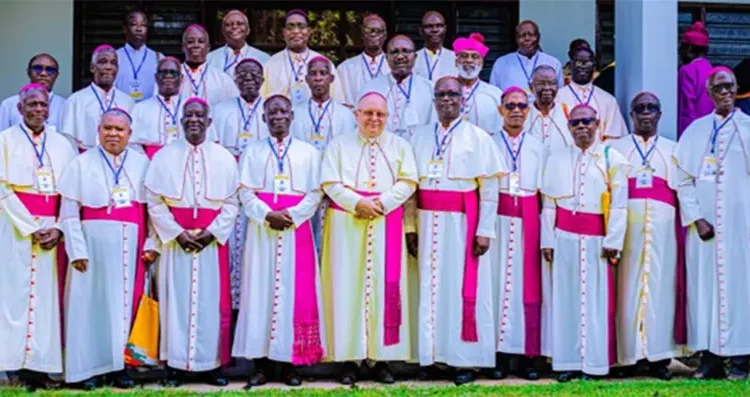The Ghana Catholic Bishops’ Conference (GCBC) has urged President John Dramani Mahama to demonstrate courage and moral clarity in confronting the escalating menace of illegal mining, popularly known as galamsey, describing it as a looming “ecocidal tragedy of monumental proportions.”
Delivering a message at the High-Level Engagement on Galamsey held on Friday, October 3, 2025, the Catholic Bishops warned that Ghana is poisoning its own life-support systems through mercury and heavy metals contamination caused by unregulated mining activities.
Quoting findings from a recent Mercury and Heavy Metals Impact Assessment conducted by Pure Earth and the Environmental Protection Authority (EPA), as well as testimony from the UN Special Rapporteur on Toxic Substances, the GCBC stated that the situation is no longer merely an environmental issue but “a public health and human rights emergency.”
According to the report, mercury and arsenic levels in certain communities exceed safe limits by hundreds of times, leaving rivers, soils, and crops polluted. More than half a million farmers have been displaced, while children are already showing signs of toxic exposure.
“Our water, our food security, and the very future of our nation are at stake,” the statement, signed by Most Rev. Matthew Kwasi Gyamfi, Bishop of Sunyani and President of the GCBC, declared.
The Bishops called on President Mahama to act swiftly, stressing that Ghanaians need “clarity and credibility” in the government’s response.
They cautioned that what is required now is not further studies or lamentations, but “decisive and transparent action.”
The Catholic Bishops urged the government to demonstrate firm leadership in addressing what they described as a national emergency threatening the environment, public health, and the future of the nation.
Central to their demands was the establishment of clear benchmarks that would trigger the declaration of a state of emergency in areas devastated by illegal mining. According to the Ghana Catholic Bishops Conference, such a move would underscore the gravity of the situation and provide the legal framework for robust interventions.
The Bishops also pressed for the visible prosecution of galamsey kingpins, particularly those already cited in official reports. They stressed that prosecuting only small-scale operators while leaving behind politically connected individuals would weaken public trust in the anti-galamsey campaign.
The Conference called for the operationalisation of the fast-track courts promised by government to accelerate justice delivery to deter further lawlessness in the sector and the introduction of measurable performance indicators for local authorities and security services involved in the fight. This, they argued, would ensure accountability and make it possible to assess the effectiveness of interventions at both community and national levels.
They further urged government to guarantee protection for communities and traditional leaders who resist illegal mining, while ensuring that those complicit in the illicit trade are held accountable.
The Bishops reiterated that the galamsey menace is not only an environmental issue but also a moral and national security concern. They expressed hope that President Mahama’s administration would back its commitments with bold and transparent action that reflects the urgency of the crisis.
The Bishops also pledged the church’s readiness to support national efforts through its dioceses, parishes, schools, hospitals, and social interventions in driving awareness, community mobilisation, and fostering a culture of environmental stewardship.
“Your Excellency, credibility is now as important as policy. Our people must see that no one is above the law, and that economic expediency cannot outweigh the sacred right to clean water, safe food, and a healthy environment,” they pointed out.
The Catholic Bishops further urged President Mahama to seize the moment with courage, warning that history would not judge his leadership by promises alone but by the legacy of protection he secures for generations yet unborn.
“To delay is to risk complicity in what is fast becoming an ecocidal tragedy,” the Bishops cautioned.
FROM Daniel K. Orlando, Ho


